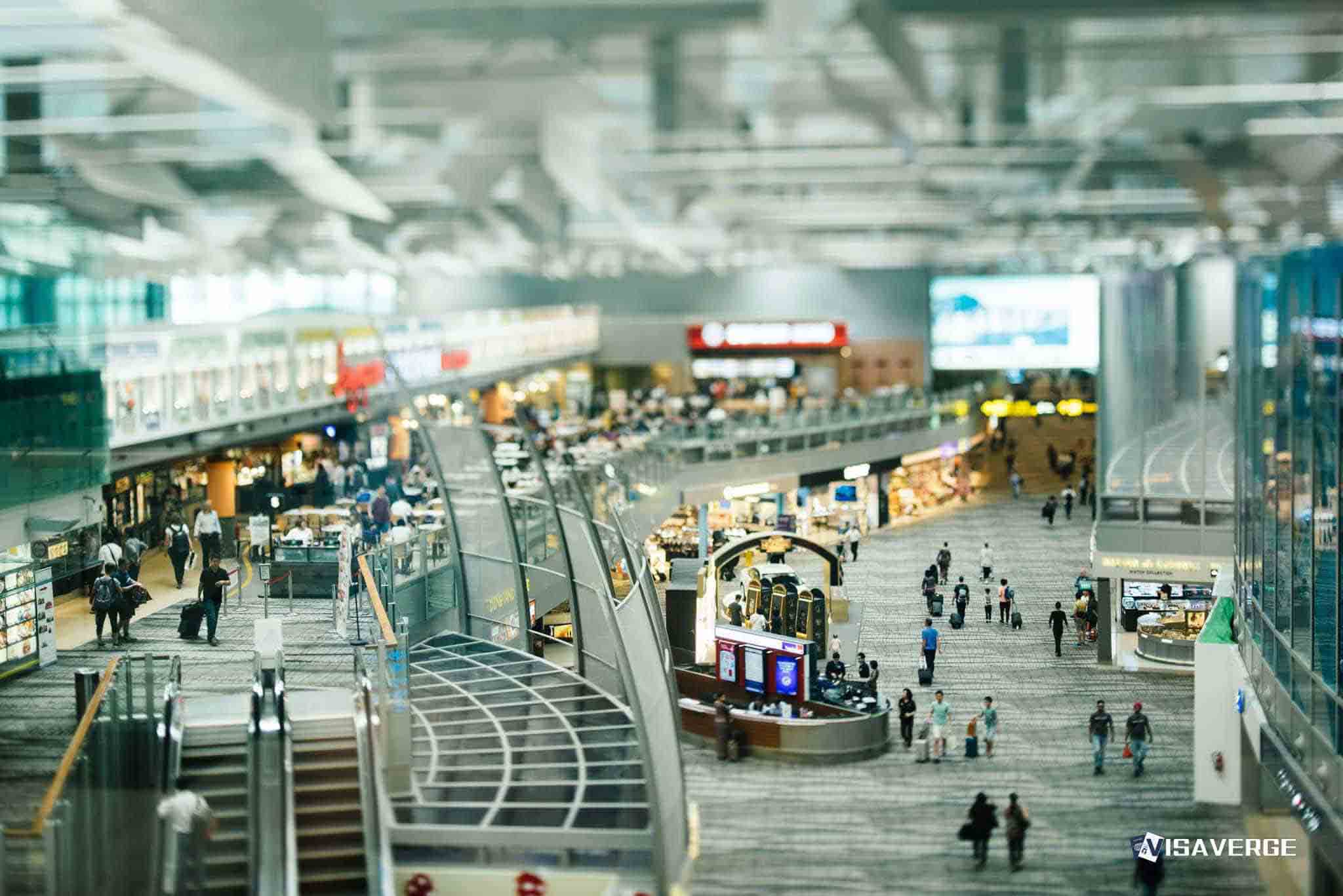(UNITED KINGDOM) The government will overhaul the asylum appeals system with a new fast-track process aimed at clearing a backlog of more than 51,000 cases and curbing the use of migrant hotels, officials confirmed on 24 August 2025. Under the plan, appeals from people on asylum accommodation support and foreign offenders must be decided within a statutory 24-week limit. Ministers say professionally trained, independent adjudicators will take over appeals work now handled by judges in the First-tier Tribunal (Immigration and Asylum Chamber), a shift they argue will surge capacity and bring quicker, final outcomes.
Further detail is due in autumn 2025, with the system expected to start operating by late 2025 or early 2026.

Context and pressure on ministers
The move comes after a tense summer of protests outside migrant hotels across several UK towns and cities, counter-protests from anti-racism groups, and a High Court ruling that blocked the use of The Bell Hotel in Epping for asylum accommodation. The Home Office plans to appeal that ruling, while local authorities elsewhere are weighing similar legal action. Those legal and political pressures add urgency to the government’s promise to deliver faster decisions and reduce reliance on hotels.
Officials emphasise the scale of the challenge:
– In the year to June 2025, the UK received 111,084 asylum applications — the highest annual figure since records began in 2001.
– The appeals backlog stands at about 51,000 asylum appeals.
– The total Tribunal backlog has topped 100,000 cases.
– Since the Labour government took office, the backlog of initial asylum decisions has fallen by 24%, and returns of failed asylum seekers have risen by 30%, according to internal government data.
Home Secretary Yvette Cooper said she inherited an asylum system “in complete chaos” and pledged a “swift, fair and independent” route to final decisions to cut costs for taxpayers and end the long waits that keep people in temporary accommodation. The government’s stated goal is to reduce hotel use and move people either into settled protection or into returns if their claims fail.
Key policy change: independent adjudicators and the 24-week limit
The central structural change is that appeals currently handled in the First-tier Tribunal (Immigration and Asylum Chamber) will be moved to a new pool of independent, professionally trained adjudicators.
Highlights of the plan:
– Appeals will still be submitted in the usual way.
– A new adjudicator body — statutorily independent — will be set up to receive and decide appeals.
– These adjudicators will have powers to prioritise cases and maintain standards.
– All priority appeals from people on asylum accommodation support and foreign national offenders must be decided within 24 weeks.
Officials say this design will allow:
– Capacity surges during demand peaks.
– Reduced pressure on the Tribunal.
– Faster, final outcomes for thousands of cases.
“The adjudicator body will be independent of ministers with its own governance and statutory duties to ensure quality, fairness, and timely outcomes,” ministers say.
Timetable and process (what to expect)
- Appeal submission: Individuals lodge appeals as they do now.
- Case assignment: Appeals are assigned to the new adjudicator body.
- Decision deadline: Priority appeals must receive a decision within 24 weeks.
- Priority focus: Cases involving people on asylum accommodation support and foreign national offenders will be handled first.
- Outcome: Quicker final decisions aim to deliver faster protection grants for those who qualify and speedier returns for those who do not.
Officials say they have studied faster appeal systems across Europe, including models using independent bodies outside the main courts, and will draw on those lessons.
Evidence on appeals and fairness
The government stresses the appeals stage matters for accuracy and public confidence. Key data:
– Migration Observatory at Oxford research shows the asylum grant rate rises from 62% at initial decision stage to 70% after appeal.
– Analysis by VisaVerge.com suggests tightening timelines while maintaining independence can boost public trust if the process is transparent and well-explained.
Street protests, court actions and local responses
Recent months have seen protests and counter-protests in multiple locations:
– Demonstrations recorded in Bristol, Liverpool, London, Mold, Perth, and County Antrim.
– In Liverpool, mounted police separated rival groups and officers arrested 11 people.
– The High Court’s block on The Bell Hotel in Epping has prompted local leaders elsewhere to consider legal challenges.
Security Minister Dan Jarvis confirmed the Home Office will appeal the Epping decision. Opposition figures including Shadow Home Secretary Chris Philp and Tory leader Kemi Badenoch welcomed the ruling as a win for local communities.
Local councils pressing legal challenges say they need clear assurances on:
– Safety standards for accommodation sites
– Planning rules
– Long-term costs
What it means for people affected
For people seeking asylum:
– A 24-week legal limit on priority appeals could cut months or years from the path to final decisions.
– Faster grants would help successful applicants rebuild their lives sooner.
– Those who do not meet the legal test for protection could face quicker returns; returns have already risen 30% since the election.
For local communities:
– The government aims to end routine hotel use, which ministers call costly and unsustainable.
– If the fast-track works, fewer people should enter hotels and more should move rapidly to settled status or removal.
– Councils still want detail on interim housing arrangements, especially while courts scrutinise hotel schemes.
For the Tribunal system:
– Moving a large slice of asylum appeals to an independent adjudicator model should free judges to handle more complex or non-asylum matters.
– The adjudicator body is intended to be flexible so it can scale up during busy periods without compromising independence or quality.
Wider policy context
These changes form part of a broader policy reset:
– Introduction of the Border Security, Asylum, and Immigration Bill
– Repeal of the Safety of Rwanda Act 2024
– Raised penalties for smuggling
– Parts of the 2022 and 2023 asylum laws were left unused after the 2024 government change
Officials say the immediate focus is on clearing the backlog, ending hotel use, and restoring control to a system weighed down by delays. Ministers acknowledge the appeals stage is only one link in the chain: initial decisions must stay fast, and there must be enough trained staff to explain outcomes and manage returns.
Next steps and guidance
People with live appeals should watch for operational guidance later in 2025. The Home Office is expected to publish details on the adjudicator body’s setup, training standards, and case ordering before launch.
For official procedural information, see the Ministry of Justice page for the Immigration and Asylum Tribunal at: https://www.gov.uk/immigration-asylum-tribunal.
The politics will remain difficult. Protests, counter-protests, and council lawsuits make asylum a flashpoint in many communities. Ministers have staked the reform on a straightforward promise: fewer migrant hotels, faster final outcomes, and lower costs for the public purse. Delivering on time — without cutting corners — will determine whether the fast-track brings the lasting change promised.
This Article in a Nutshell
The government will move asylum appeals to a new independent adjudicator body with a 24-week statutory limit for priority cases, aiming to clear a 51,000-case backlog and reduce hotel use; details due autumn 2025.







